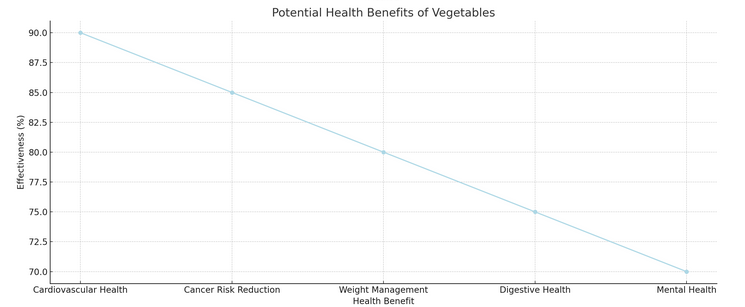
Here are some top vegetables known for their benefits to brain health:
1. Leafy Greens
- Spinach: High in antioxidants, vitamin K, folate, and lutein, which help improve cognitive function.
- Kale: Rich in antioxidants, vitamin C, and vitamin K, supporting brain cell health and reducing inflammation.
- Swiss Chard: Contains magnesium, which is crucial for nerve function and brain health.
2. Cruciferous Vegetables
- Broccoli: Packed with antioxidants, vitamin K, and choline, which support brain health and cognitive function.
- Brussels Sprouts: High in vitamin C and antioxidants, helping to protect brain cells from oxidative stress.
- Cauliflower: Contains choline and vitamin K, important for brain development and cognitive function.
3. Colorful Vegetables
- Beets: Rich in nitrates, which improve blood flow to the brain, enhancing mental performance.
- Bell Peppers: High in vitamin C and antioxidants, which protect brain cells from damage.
- Carrots: Contain beta-carotene and antioxidants, supporting brain health and reducing the risk of cognitive decline.
4. Allium Vegetables
- Garlic: Known for its anti-inflammatory and antioxidant properties, which support brain health.
- Onions: Contain antioxidants and anti-inflammatory compounds beneficial for cognitive function.
5. Other Notable Vegetables
- Tomatoes: Rich in lycopene, an antioxidant that protects brain cells and supports cognitive function.
- Asparagus: Contains folate and vitamin K, essential for brain health and reducing the risk of cognitive decline.
Incorporating these vegetables into your diet can help support brain health and improve cognitive function.
The influence of the share of vegetables in a person’s diet on health is significant and well-documented. Here are key aspects of how a higher intake of vegetables can impact health:
1. Nutrient Density
- Vitamins and Minerals: Vegetables are rich in essential nutrients like vitamins A, C, K, and folate, as well as minerals like potassium and magnesium.
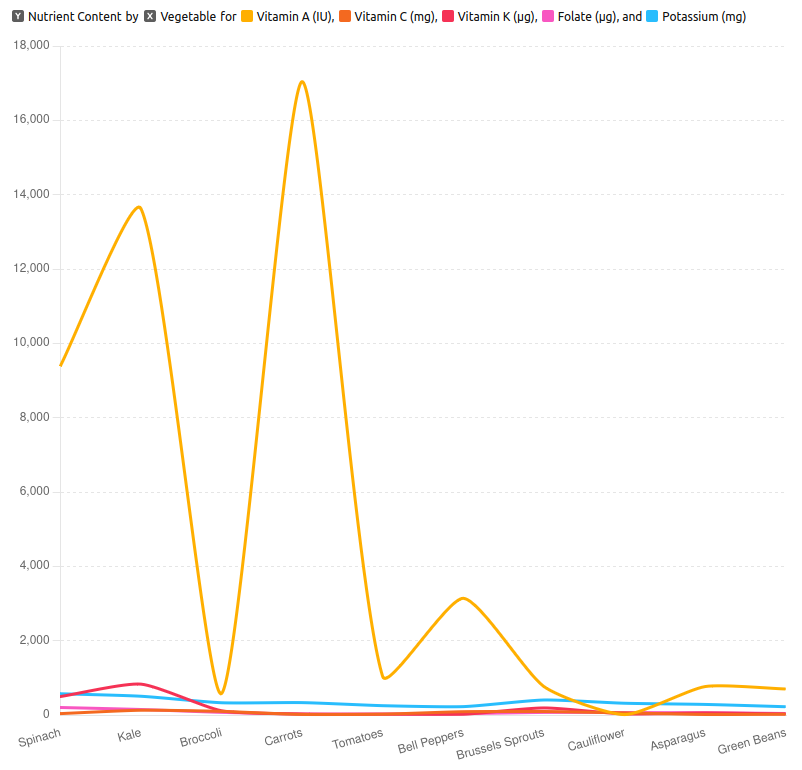
| Vegetable | Vitamin A (IU) | Vitamin C (mg) | Vitamin K (µg) | Folate (µg) | Potassium (mg) |
| Spinach | 9377 | 28.1 | 483 | 194 | 558 |
| Kale | 13621 | 120 | 817 | 141 | 491 |
| Broccoli | 567 | 89.2 | 101 | 63 | 316 |
| Carrots | 17033 | 5.9 | 13.2 | 19 | 320 |
| Tomatoes | 1025 | 13.7 | 7.9 | 18 | 237 |
| Bell Peppers | 3131 | 80.4 | 7.4 | 30 | 211 |
| Brussels Sprouts | 755 | 85 | 177 | 61 | 389 |
| Cauliflower | 0 | 48.2 | 15.5 | 57 | 303 |
| Asparagus | 756 | 5.6 | 41.6 | 52 | 271 |
| Green Beans | 690 | 12.2 | 14.4 | 33 | 209 |
Antioxidants: They contain antioxidants which help protect cells from damage.
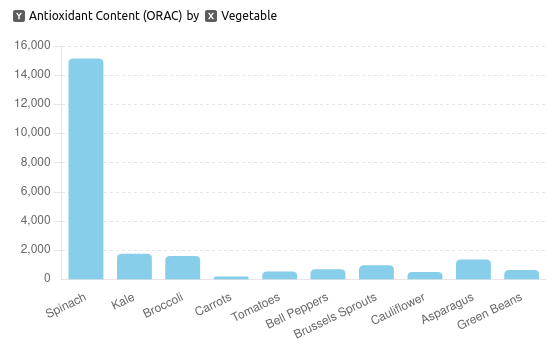
2. Disease Prevention
- Cardiovascular Health: A diet rich in vegetables can lower the risk of heart disease by reducing blood pressure and cholesterol levels.
- Cancer Risk: High vegetable consumption is associated with a lower risk of certain cancers due to the presence of phytochemicals and fiber.
- Diabetes Management: Vegetables help in managing blood sugar levels due to their low glycemic index and high fiber content.
3. Weight Management
- Low Caloric Density: Vegetables are low in calories but high in volume and fiber, which helps in maintaining a healthy weight by promoting satiety.
- Metabolic Health: Regular consumption aids in better metabolism and reduced risk of obesity-related conditions.
4. Digestive Health
- Fiber Content: High fiber content in vegetables promotes healthy digestion and prevents constipation.
- Gut Health: Fiber also acts as a prebiotic, supporting a healthy gut microbiome.
5. Mental Health
- Mood Improvement: Some studies suggest that a diet rich in vegetables is associated with lower levels of depression and improved mental well-being.
- Cognitive Function: Nutrients in vegetables support brain health and may help in reducing the risk of cognitive decline with age.
6. Overall Longevity
- Life Expectancy: Higher vegetable intake is linked to a longer life expectancy due to the cumulative benefits on overall health.
Practical Recommendations
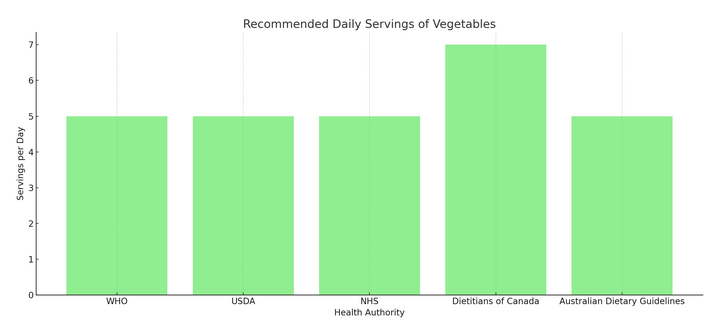
- Variety: Incorporating a variety of vegetables ensures a broad range of nutrients.
- Portion Size: Aim for at least 5 servings of vegetables per day, as recommended by health authorities like the World Health Organization.
- Cooking Methods: Prefer methods like steaming or raw consumption to preserve nutrients.
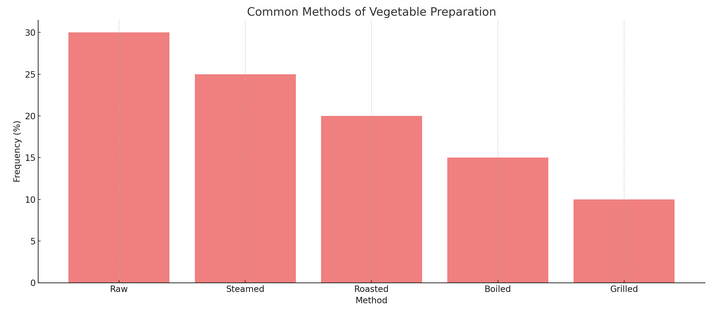
Conclusion
Increasing the share of vegetables in a person’s diet is a powerful way to enhance health across multiple dimensions. It contributes to disease prevention, better weight management, improved mental health, and overall longevity. Adopting dietary habits that prioritize vegetables can lead to significant improvements in quality of life and health outcomes.